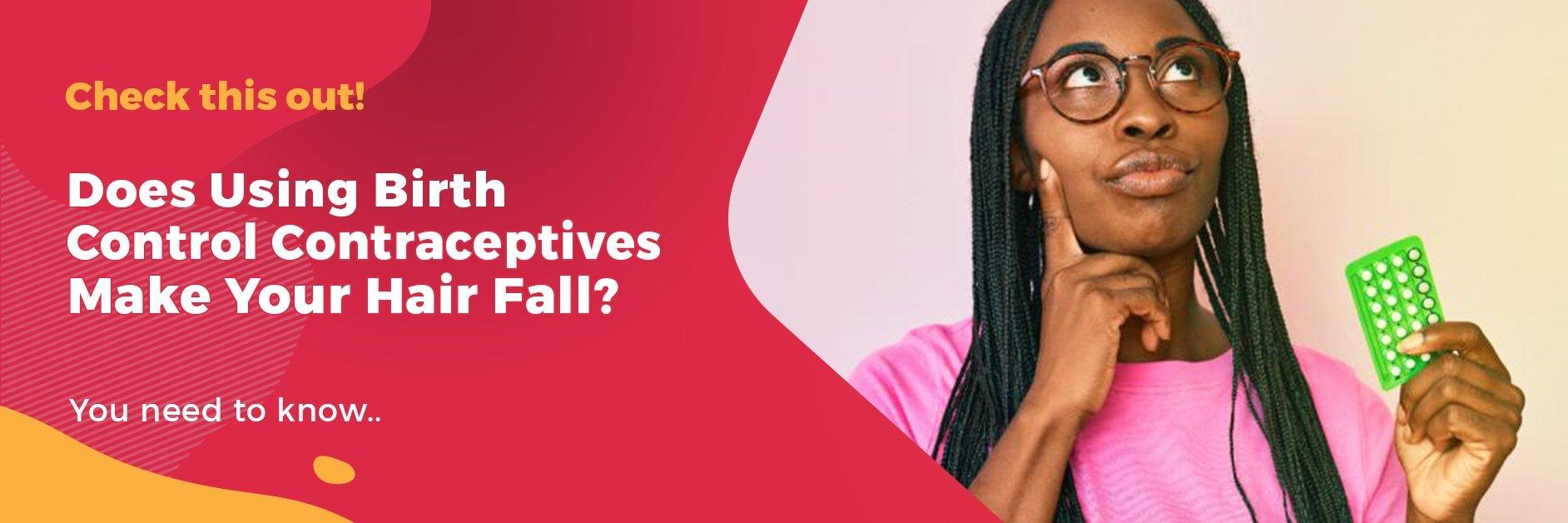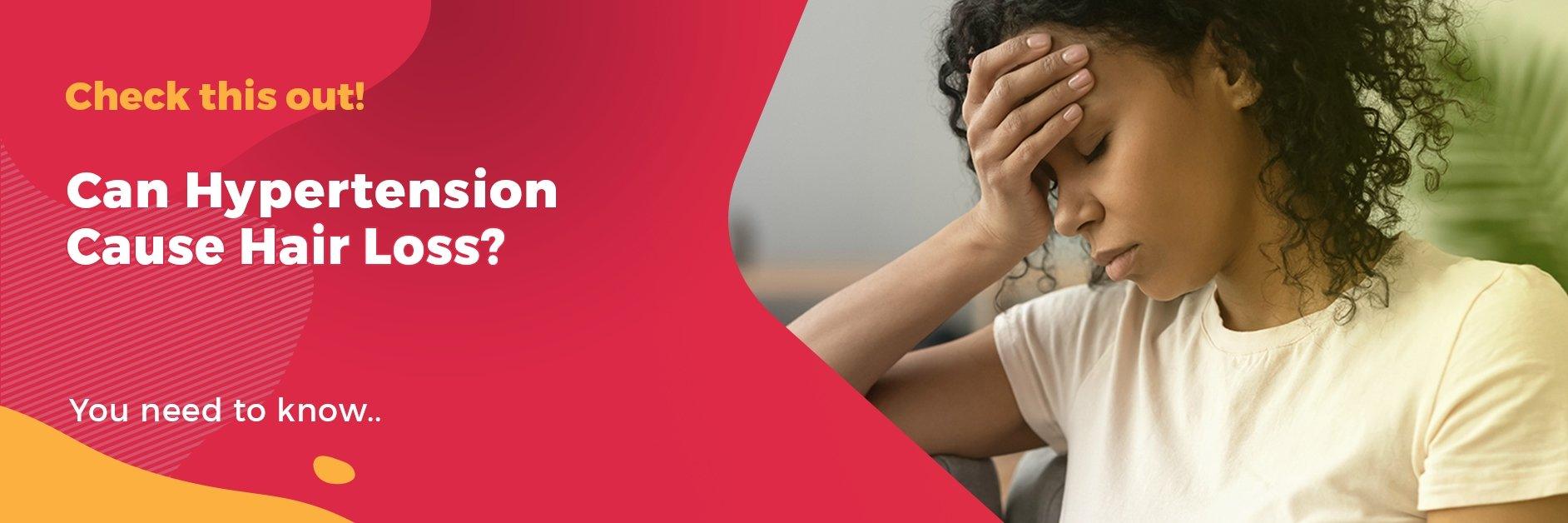
Does Using Birth Control Contraceptives Make Your Hair Fall?
There are numerous causes for female hair loss, but prescription birth control pills are a common trigger. After several months after a woman gives birth, she may begin to use her contraceptives to avoid unwanted pregnancy. Most common contraceptive use by women who just gave birth are Birth control pills and IUD. Women who are experiencing hormone-related hair loss or who are especially sensitive to hormonal changes may notice their hair thinning when using hormonal contraception. These women may even experience hair loss several weeks or months after stopping the medication. This is because birth control contains small amounts of man-made estrogen and progestin hormones, designed to suppress ovulation and prevent pregnancy. Estrogen and progestin change your hormonal balance, which can cause you to experience varying levels of hair loss.
In your hair’s normal growth cycle, most of your hairs are in the growing, or anagen, phase. The resting phase, also called the catagen phase, is the interim stage when your hair growth stops. Birth control can cause your hair to shift from the growing phase to the resting phase too soon—ultimately leading to a hair loss condition called telogen effluvium.
Birth-control Pills
Birth control pills come in two different forms, which are based on the hormones that they contain.
Mini Pills Only contain progestin, a synthetic form of progesterone. Combination birth control pills contain both progestin and synthetic forms of estrogen. Mini Pills may not prevent pregnancy as effectively as combination pills.
The pills can also differ by hormone dose. In monophasic birth control, the pills all contain the same hormone dose. Multiphasic birth control contains pills with different amounts of hormones.
Birth control pills can cause hair loss in women who are especially sensitive to the hormones in the pill or who have a family history of hormone-related hair loss.
Hair normally grows in cycles. Anagen is the active phase. During this phase, your hair grows from its follicle. This period can last for two to seven years.
Catagen is the transitional stage when your hair growth stops. It lasts for about 10 to 20 days.
While Telogen is the resting phase. During this phase, your hair doesn’t grow. Between 25 and 100 hairs are shed daily in this phase, which can last for up to 100 days.
Birth control pills cause the hair to move from the growing phase to the resting phase too soon and for too long. This form of hair loss is called telogen effluvium Large amounts of hair can fall out during this process.
If baldness runs in your family, birth control pills can speed up the hair loss process.
Other hormonal birth control methods can also cause or worsen hair loss. These methods includes
- skin patches
- progestin implants
- vaginal rings
- Hormone injections
The American Hair Loss Association suggests that women who wish to continue using hormonal birth control use a low androgen formula. Androgens are male hormones that are typically found in very small amounts in women. High-androgen birth control can artificially elevate male hormones in females, resulting in hair loss.
IUD (Intrauterine Device)
IUD Brands in the US and in Europe list alopecia as one of the side effects reported in less than 5 percent of women who received the IUD during clinical trials. The number of women who reported hair loss during clinical trials was noteworthy enough to list it as a relevant adverse reaction on the product. Since other possible causes of hair loss were ruled out in some of these women, the researchers believe there’s reasonably strong evidence to suggest that the IUD caused their hair loss.
The researchers also noted how the reduction in estrogen production and activity in menopause can cause associated hair loss by causing testosterone, which then becomes activated to a more active form called dihydrotestosterone, to have a higher bioavailability within the body and leads to hair loss.
Though the exact reason why IUD may cause hair loss isn’t known, the researchers hypothesized that, for some women, hair loss may result from a lower level of estrogen occurring in the body related to exposure to the progesterone-like hormone in IUD.
If you’ve noticed a sudden change in the thickness of your hair and are using hormonal contraception, including pills, injections and IUD, it may be time to talk to your doctor about alternative options.
Treatment for hair loss
Hair loss caused by birth control pills is usually temporary. It should stop within a few months after your body gets used to the pill. Hair loss should also stop after you’ve been off of the pill for a while.
If the hair loss doesn’t stop and you don’t see regrowth, consult your doctor. Book a consultation with our resident certified doctors, they will surely help you with your hair loss problem. We have 3 Hair Growth Consultation Packages to choose from
Ways to Make Hair Look Thicker After Birth Control Hair Loss:
Again most of birth control hair loss is temporary and reversible, and will usually resolve itself in three to six months. In the meantime, follow these tips to make your hair look thicker and fuller.
Nourish Your Hair
One way to maximize the growing phase of your hair growth cycle is to eat a diet rich in hair-healthy nutrients. Think lean proteins, healthy fats, citrus fruits, and leafy green vegetables.
Of course, life happens, and it’s not always easy to eat all the foods you need to support regular hair growth. That’s where multi-vitamins come in Glammednaturallyoil Biotin Vegetarian Strawberry Gummies For Hair Growth can fill in the gaps in your diet. With biotin, zinc, vitamin C, horsetail plant extract, and iron Biotin Gummies help to nourish hair follicles for healthier-looking hair from the inside out.
Volume it up
How you style your hair can make a huge difference in how thick it looks. Follow this styling routine to boost your locks, making them look more volumized. That will help disguise any hair loss from birth control:
- Start by washing your hair with Glammednaturally Biotin Shampoo which gently cleanses hair.
- Next, apply a small amount of Glammenaturallyoil Biotin Conditioner from the ear level to the ends. Let the conditioner sit for several minutes while it works its magic. Then rinse with cool water. This will add moisture to your hair without weighing it down.
- Gently dry your hair with a cotton t-shirt.
- Apply a small amount of Glammenaturallyoil Hair Growth Oil from roots to ends. This lightweight, body-boosting hair growth oil leaves hair looking thicker. Use a wide-tooth comb to work the product evenly through the hair.
- Use a round brush to brush it and smoothen flyaways and frizz. You’ll be amazed at your hair’s volume!



Leave a comment
This site is protected by hCaptcha and the hCaptcha Privacy Policy and Terms of Service apply.